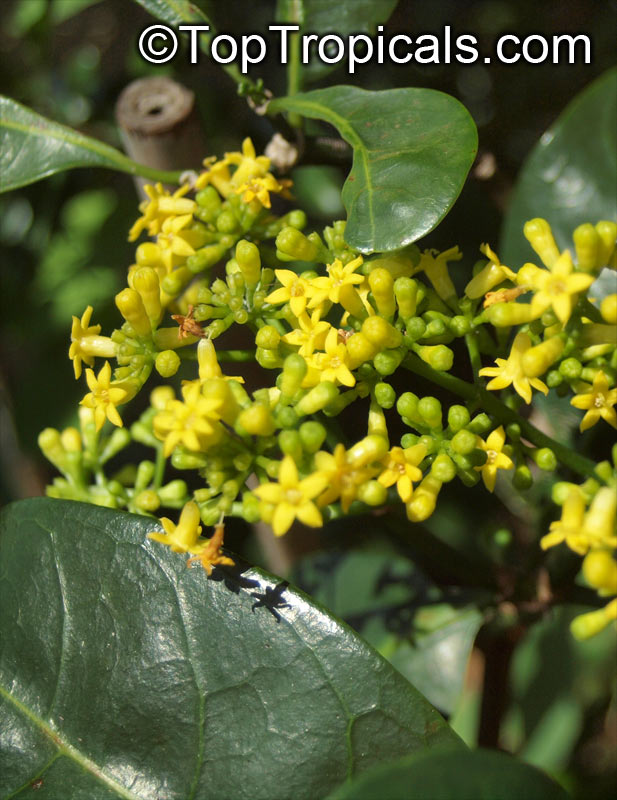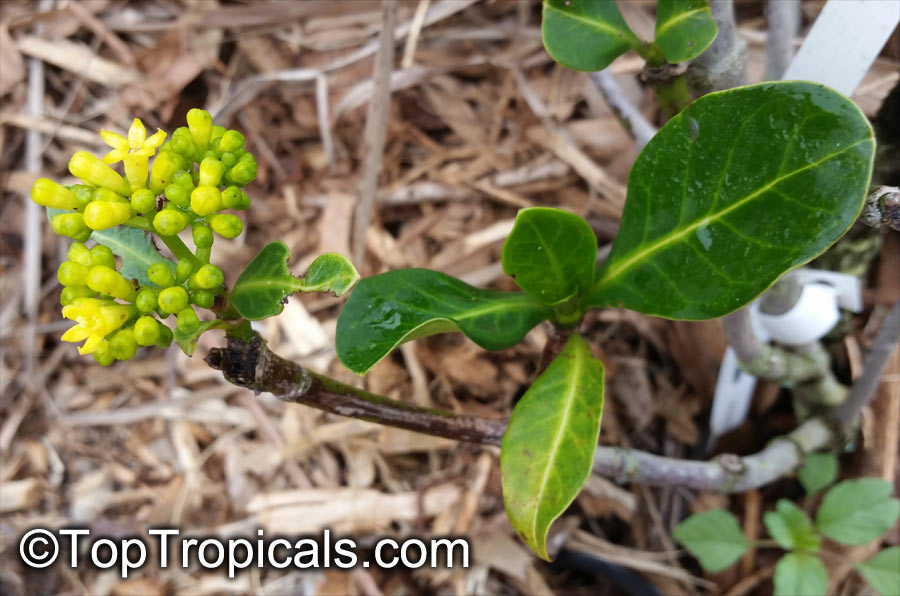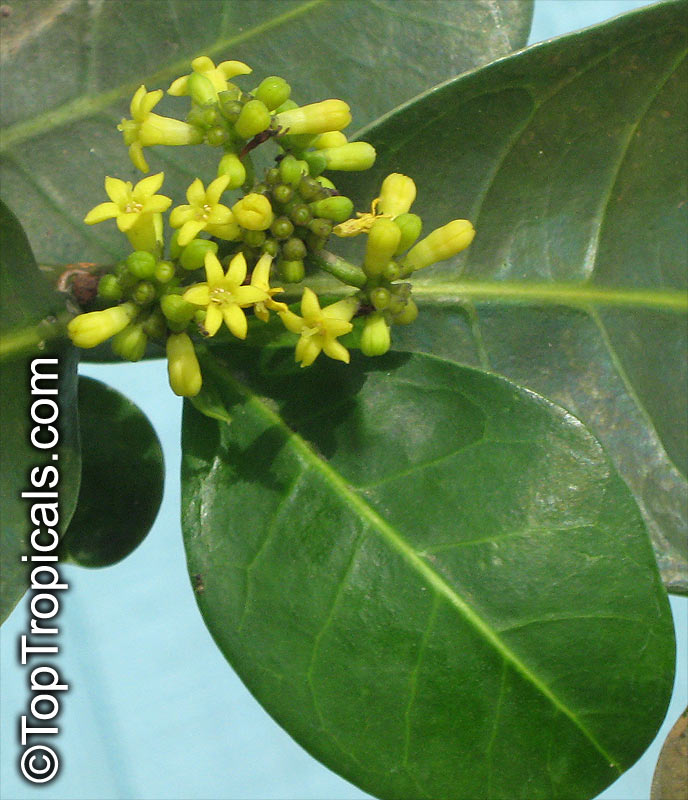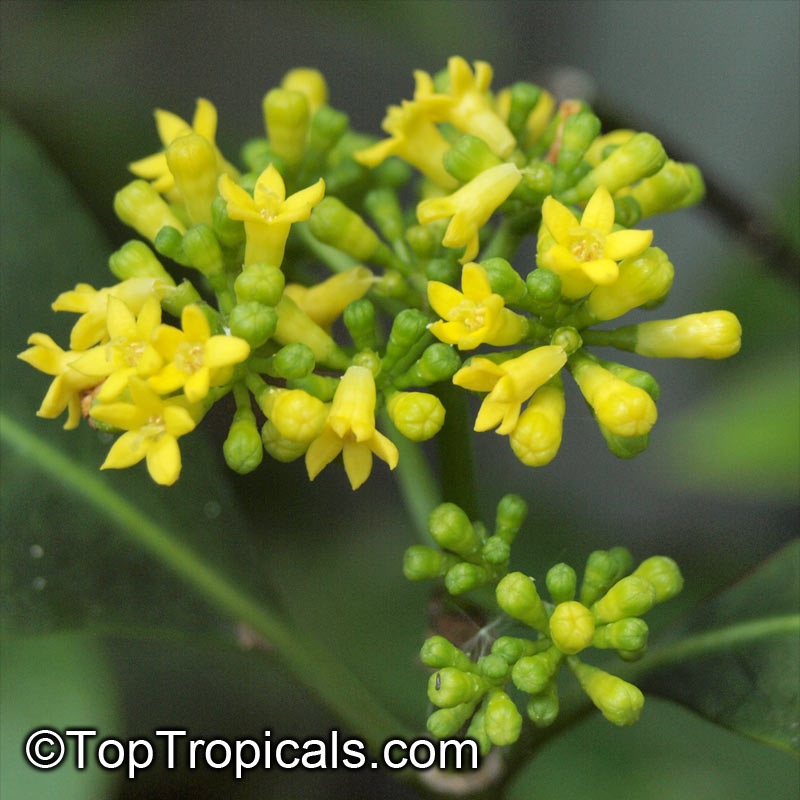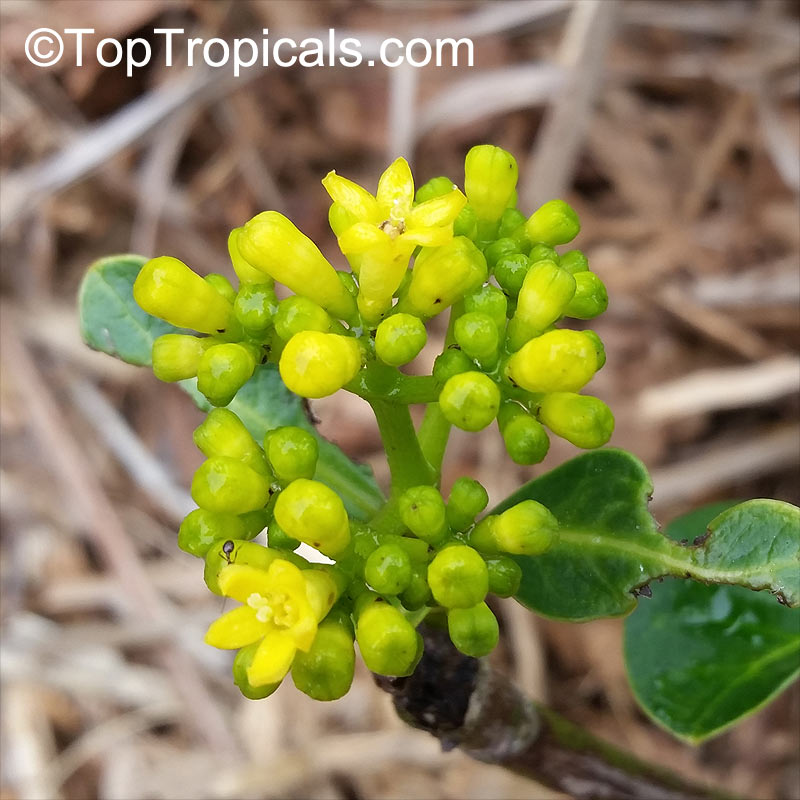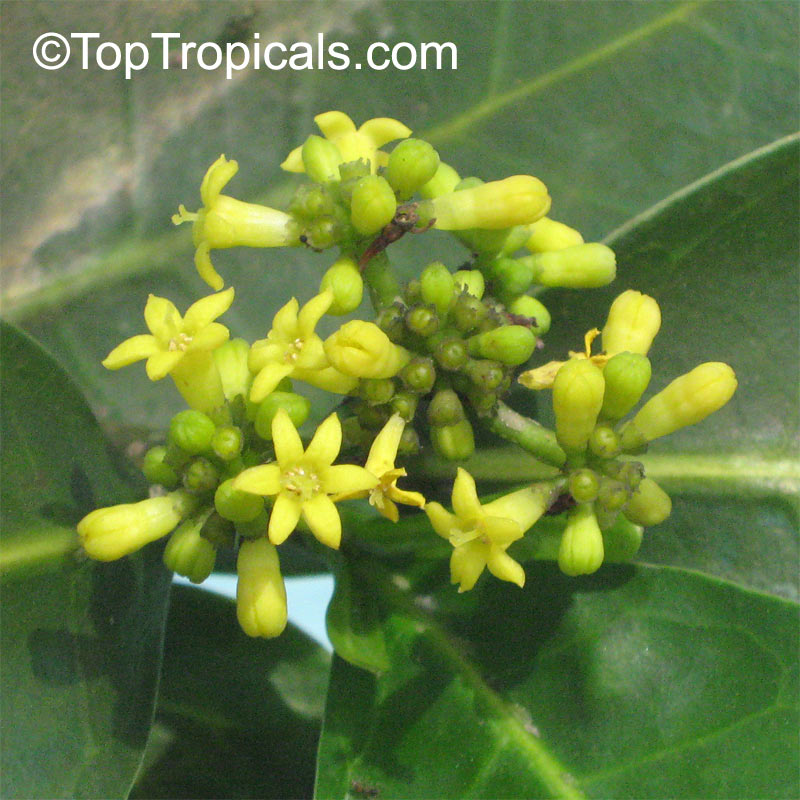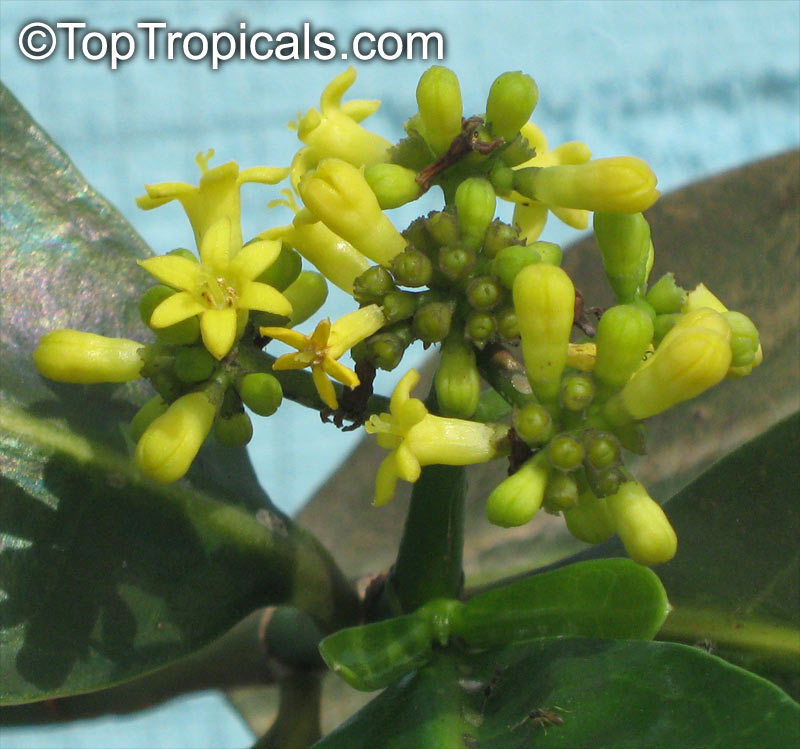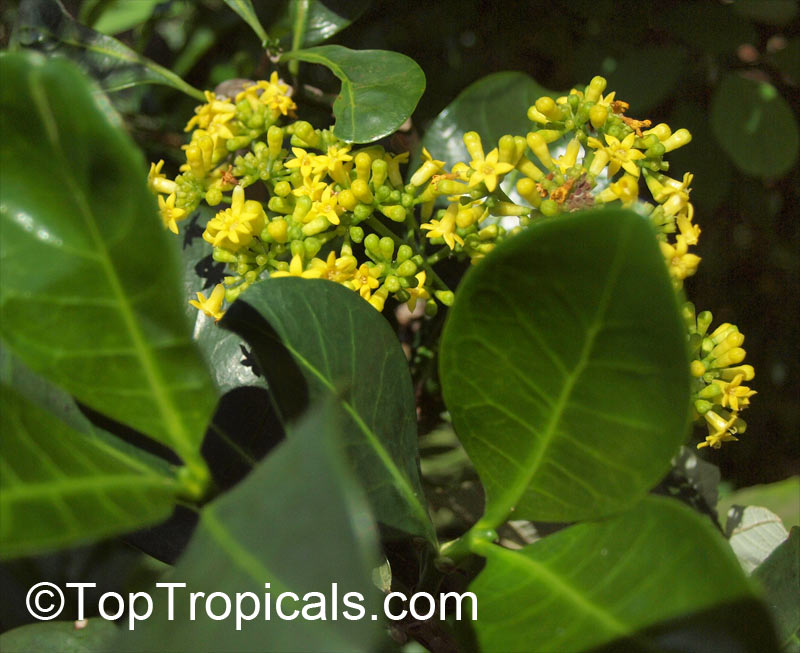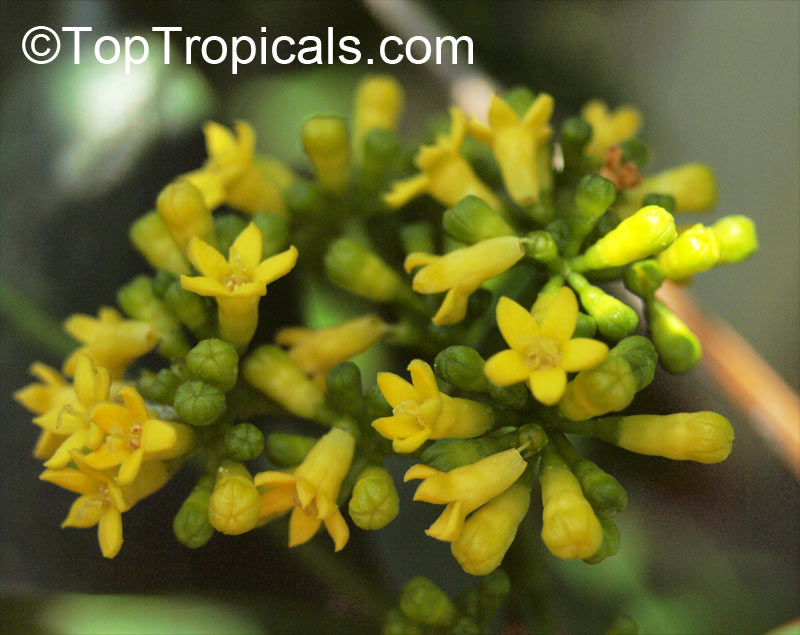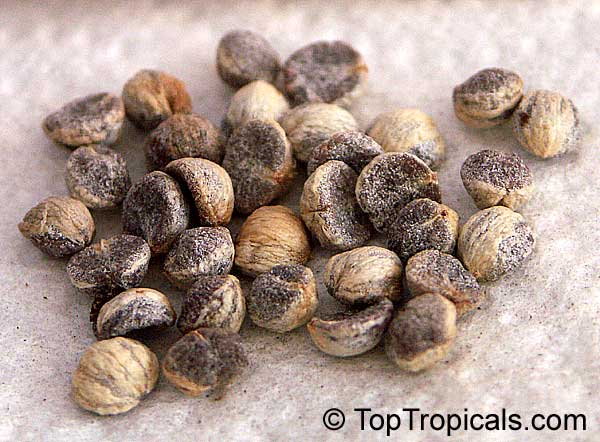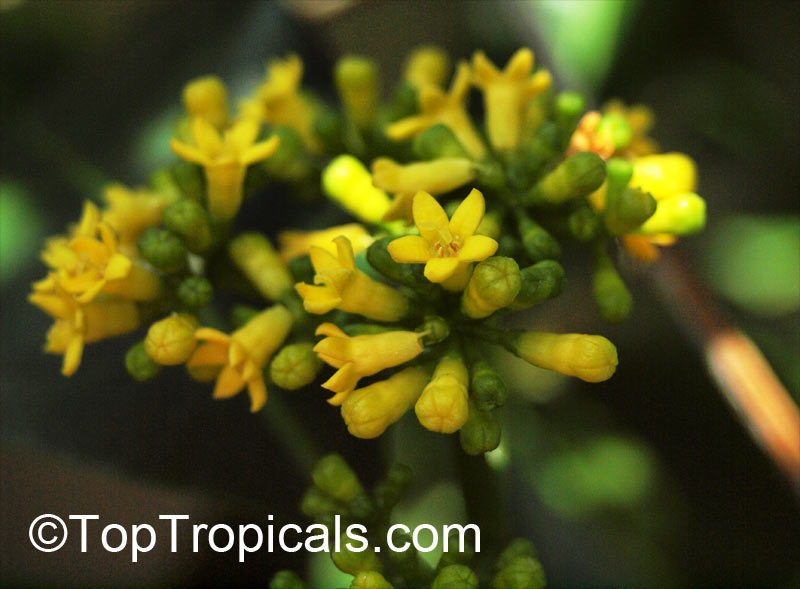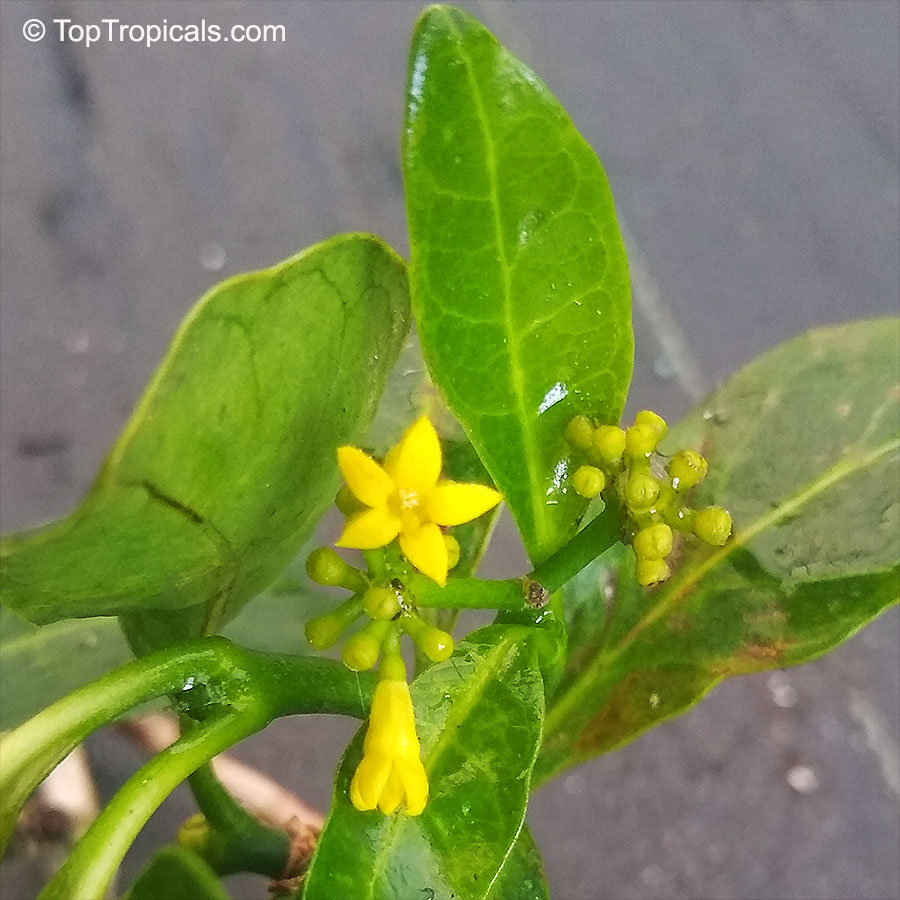Psychotria capensis (Black Bird-Berry)
Botanical name: Psychotria capensis
Common names: Black Bird-Berry, Bird-Berry, Bastard Lemonwood, Lemon Bush
Family: Rubiaceae
Origin: South Africa








Psychotria capensis is an ethnomedical plant native to South Africa, giving it the common name - Black Bird-Berry. It is a large shrub growing 5-10 ft tall or can reach beyond 10-20 ft if left to grow as a small tree. It is best suited to full sun and requires moderate water - not too little and not too much. The white or off-white flowers of Psychotria capensis make it an eye-catching addition to any garden and these flowers can often attract butterflies and hummingbirds. Occasionally, the flowers can also produce small yellow or orange fruits.
For those attempting to grow Psychotria capensis in cooler regions with potentially harsh winter temperatures, it is best to plant it in a container and be sure to bring it in before the frost. When bringing it in it is best to trim it back to prevent the plant from becoming root-bound in the winter. During the winter months, keep it in a bright spot, ideally near an east-facing window, to allow for enough light. In these cold months, the amount of water required is reduced, so making sure not to overwater is important.
Overall, Psychotria capensis is an easily maintained shrub or small tree with delightful white and yellow flowers. It makes a wonderful addition to any garden and is especially attractive to butterflies and hummingbirds. With the right growing conditions, it can thrive in USDA Zones 9-11, or with protection can be grown even in cooler climates.
Similar plants: Psychotria capensis (Black Bird-Berry)
- Psychotria ankasensis (Psychotria)
- Psychotria carthagenensis (Amyruca)
- Psychotria ipecacuanha (Ipecacuanha)
- Psychotria kirkii (Psychotria)
- Psychotria nervosa (Wild Coffee)
- Psychotria poeppigiana (Hot Lips)
- Psychotria sp. (Psychotria)
- Psychotria sulzneri (Dull Wild Coffee)
- Psychotria viridiflora
- Psychotria viridis (Chacruna)
